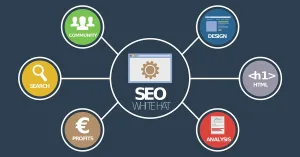Banks have been the first port of call for potential borrowers for centuries. However, global economic growth is still decreasing post-COVID, and major financial institutions (MFIs) increasingly turn away borrowers and reject loan applications.
This is where private lenders come in.
Private lenders are a lifeline for individuals who've had their dreams of owning a home dashed, who've struggled to find secure funding for their business ventures, or who need a hundred-dollar safety net in a tough situation. Private lenders' flexible, personalized approach to repayment even attracts those who've been approved for bank loans.
As such, it's no surprise that individuals with extra capital are looking to enter the industry. But, while they're vital, you'll need more than substantial savings to set up your own loan service. You'll need a robust strategy, an understanding of the loans you can offer, and contact with established lenders. Fortunately, our definitive guide contains information on each of these things. Read on to find out exactly how you can become a private lender.
What You Need to Become a Private Lender
If you're considering becoming a private lender, you'll need to make sure you have these essentials before you get started:
- Lending Capital - Unless your state has a minimum net worth requirement for lenders, there is no set amount of money needed to set up a loan service. However, the amount of lending capital you start with will determine the loans you can offer, the interest rates you'll charge, and the types of borrowers you'll attract.
- Startup Capital - As you would for a store or service, you'll need funding to set up your private lending business. Instead of being loaned to borrowers, this capital will pay for website creation, advertising costs, employees' wages, consulting fees, or rent for physical premises.
- Knowledge of Loans - A basic understanding, at least, of lending and the current state of the industry is necessary for a successful private loan service. If you don't have this knowledge, partner with someone who does or contact a consultant who can support you.
Legal Requirements for Becoming a Private Lender
A common misconception held by those wanting to become private lenders is that the industry is unregulated. While it's true that private lenders are governed by fewer regulations than MFIs, you'll still need to meet several legal requirements.
Again, if you don't have knowledge of these requirements, you'll need to employ or consult with someone who does. But, to get you started, here is a basic overview of the legal considerations you'll need to make as a new private lender.
State Licensing
Most states require individuals and businesses to obtain specific licenses if they lend money, particularly for real estate loans. Some standard licenses include:
- Mortgage Lender License: Required for those offering residential mortgage loans. The exact name and requirements for this license vary by state.
- Consumer Lending License: Necessary if you are providing personal loans to consumers.
- Commercial Lending License: Some states require this license for commercial loan lenders.
To find out more about your state's requirements for private lenders, contact the Department of Financial Services or the Department of Banking. You may also want to contact your state's Consumer Protection Agency.
Mortgage Loan Originator (MLO) License
Originating a mortgage loan is the process of receiving and approving/rejecting a potential borrower's loan application. Due to this, private lenders who offer mortgage loans also require an MLO license. To achieve an MLO, you'll need to pass the SAFE (Secure and Fair Enforcement for Mortgage Licensing) exam, and meet continuing education requirements.
To determine whether you need an MLO, head to the National Mortgage Licensing System Resource Center.
Compliance with Federal/State Regulations
While each state has its own regulatory framework for lending activities, private lenders must also comply with federal laws, including:
- Truth in Lending Act (TILA): This law ensures lenders give borrowers clear and honest information about their loan terms. This way, borrowers know exactly what they’re getting into with their interest rates, fees, and payment schedules.
- Dodd-Frank Act: This act is designed to make mortgage lending fairer and safer. One key rule it includes is the "ability-to-repay" requirement, which ensures borrowers can afford the loans they’re taking out.
- Usury Laws: These laws set limits on how much interest lenders can charge. The maximum allowable rates vary from state to state, so be sure to familiarize yourself with the rules in your area to avoid fines and other penalties.
Even if the types of loans you decide to offer aren't governed by specific legal requirements, you'll still need to ensure your loan agreements are legally sound. Working with a knowledgeable attorney to draft and review loan documents will help protect your interests and ensure consistent compliance.
Types of Loans Private Lenders Offer
While real estate and business loans are the most popular options for private lenders in 2024, you can offer several kinds of loans. Each has unique benefits, drawbacks, and specific licensing requirements as discussed above. They include but are not limited to:
Real Estate Loans
- Residential Mortgages - Loans for purchasing or refinancing residential properties. MFIs often reject borrowers for residential mortgages.
- Fix and Flip Loans - Short-term loans for investors to buy properties for renovation and quick sales. Relatively low risk, with built-in security.
- Rental Property Loans - Loans for purchasing rental properties, often with longer terms. Again, with rent coming in regularly, these loans are low risk.
- Commercial Real Estate Loans - Loans for purchasing or refinancing commercial properties like office buildings, retail spaces, or industrial properties. These could also be considered business loans.
Consumer Loans
- Auto Loans - Loans for purchasing vehicles. Again, these loans are secured by the asset they are used to buy, so can be low risk.
- Student Loans - Popular private alternatives to federal student loans. While these are in high demand, they come with a high level of risk.
Business Loans
- Small Business Loans - These loans help small businesses with working capital, expansion, or equipment purchases. Again, they're in high demand but are risky, with many small businesses failing in their first year. It's best to work with established small businesses.
- Bridge Loans - Short-term loans to provide quick cash flow while waiting for long-term financing from an MFI. Usually, these loans are repaid quickly, so carry little risk.
- Merchant Cash Advances - Advances on future sales or receivables for businesses needing immediate cash. Can provide quick returns for lenders, but these returns are tied to future profit.
- Corporate Mezzanine Loans - Often used by businesses to finance expansion or acquisition projects. Offer high returns for lenders and are somewhat low risk as established businesses are most likely to take them out.
Personal Loans
- Payday Loans - Used for personal expenses like medical bills, education, or debt consolidation. These loans usually constitute small amounts repaid quickly, often with an individual's next paycheck. However, strict legal restrictions may govern payday loans in your state.
- Construction Loans - Specifically for financing the construction of a new home, extension, conversion, or renovation. May take a long while to be repaid as building projects can easily hit roadblocks. Plus, new homes aren't profit-producing assets, so repayment will come from the borrower's income.
Remember, your available lending capital and current lending licenses are the only things stopping you from offering multiple loan types. Many private lenders diversify their loan offerings to reduce the risk of defaults and maximize income.
To Secure or Not to Secure?
Choosing whether or not to require your borrowers to provide securities can be tough. Secured loans, backed by collateral like vehicles or valuable items, reduce risk and allow for lower interest rates, attracting more borrowers in the future. On the other hand, unsecured loans, which don't require collateral, carry higher interest rates due to increased risk but appeal to borrowers who lack valuable assets.
The choice ultimately depends on your tolerance for risk, available capital, and the borrowers themselves. Offering a tailored service that considers the borrower's wishes and balances them with your needs is an excellent middle ground. However, if the choice becomes offering an undesirable loan or losing a borrower, don't hesitate to prioritize your business's needs.
Advertising Your Services
Once you've obtained your licenses, decided on the types of loans you'll offer, and have some trusted individuals to advise you, you can start advertising your loans.
Step 1: Your Target Market
To determine the scope of your marketing efforts, you'll first need to determine the type of borrowers you want to attract. The types of loans you've chosen to offer will help narrow this down. For instance, if you're offering mortgage loans, there's little point in advertising to borrowers who own homes and are looking for construction loans.
However, there are additional factors to consider. For example, will you want to meet borrowers in person during the application process? If yes, you'll only need to advertise to potential borrowers who live locally. On the other hand, if you're happy to approve applications online or over the phone, you can advertise nationwide.
Step 2: Online and/or On Paper
Next, decide where you'll market your loans. These days, many private lenders operate entirely online, making digital marketing tactics much easier. While some private lenders have physical premises, this requires significant capital and is less suitable for your business if you're still getting set up. But, even if you don't have an office or storefront, you can still advertise 'on paper' using more traditional methods.
Your target market will also inform where and how you advertise your loans. For example, it's much easier to promote to potential borrowers in different states using the internet, while local borrowers may prefer the personal touch of a pamphlet.
Step 3: Choose Your Techniques
For digital marketing, your loan service's website will be the central hub to which all your advertising efforts must lead. That said, it has to look the part and be easy for borrowers to use. A great way to up your business's visibility is by offering eligibility questionnaires, interest-rate calculators, and loan applications through your website. These aids will simplify private lending for those who don't know much about it, and attract borrowers who desire a quick, stress-free process.
As for more traditional forms of advertising, leveraging local newspapers and community bulletin boards works well. You could also try more unique projects, like hosting free consultations for potential borrowers in the local community. At these sessions, you could offer advice on the type of loans you provide, answer questions, dispel myths, and generally build trust.
Embedding Your Loans Service in the Industry
Private lending is a rapidly growing industry. Due to this, it can be highly competitive, especially if you're offering popular loans to borrowers across the country. This is why establishing your loan service as reputable is essential, not only to attract borrowers but also to embed yourself among your peers and drive long-term success. Fortunately, there are many tried and tested ways to do just this…
- Build your contact list - Private lending is a particularly personal business that requires you to get to know potential borrowers. Maintaining the same attitude toward potential competition can make scaling your loan service much easier. Don't hesitate to attend conferences like the NPLA Conference or the National Private Lender Expo.
- Join organizations - Joining the American Association of Private Lenders (AAPL) or the National Private Lenders Association (NPLA) can give your lending business credibility among borrowers and peers. You'll also stay up to date on recent news about the private lending industry and be able to campaign for helpful regulatory changes.
- Work with local businesses - Reaching out to local real estate agents and financial advisors is a great way to get referrals to potential borrowers. It can also help your loan service establish itself in your community, and may even lead to partnerships down the line.
- Reviews and testimonials - Never underestimate the power of word-of-mouth marketing. Gathering and displaying reviews and testimonials from satisfied borrowers will help reinforce your reliability, attract new borrowers, and legitimize your position in the industry. Not to mention, if a borrower is less-than-satisfied, their review will give you some ideas for improvement in the future.
In Conclusion…
Getting started as a private lender requires much more than a substantial amount of capital. Right from the start, you'll need knowledgeable business partners or consultants, several licenses, and a robust plan for the types of loans you offer and the borrowers you want to attract.
However, though the industry has seen significant growth in recent years, it still offers space for new lenders. Provided your strategy is sound, and you focus on advertising to new borrowers, improving your services, and embedding yourself among your peers, private lending can be an incredibly lucrative investment.
Sources and Resources
- https://www.linkedin.com/pulse/how-get-started-private-lender-roy-epshtein/
- https://northlendfinancial.com/blog/how-to-become-a-private-mortgage-lender/#What_are_the_Requirements_to_Become_a_Private_Lender
- https://www.morganstanley.com/ideas/private-credit-outlook-considerations
- https://garnaco.net/blog/2023/02/22/is-private-money-lending-legal/
- https://www.dlapiperintelligence.com/investmentrules/countries/index.html?p=debt-finance&t=lending-and-borrowing&c=US&s=restrictions
- https://syndicationattorneys.com/articles/navigating-private-lending-laws/
- https://geracilawfirm.com/compliance-for-private-lenders/
- https://www.experian.com/blogs/ask-experian/types-of-loans/
- https://www.forbes.com/advisor/personal-loans/types-of-loans/
- https://www.investopedia.com/terms/s/securitiesbased-lending.asp/





















One comment
Austin Gilbert
Thank you for writing this article. It was very helpful and insightful. Furthermore, it has given me a better sense on how to proceed moving forward.